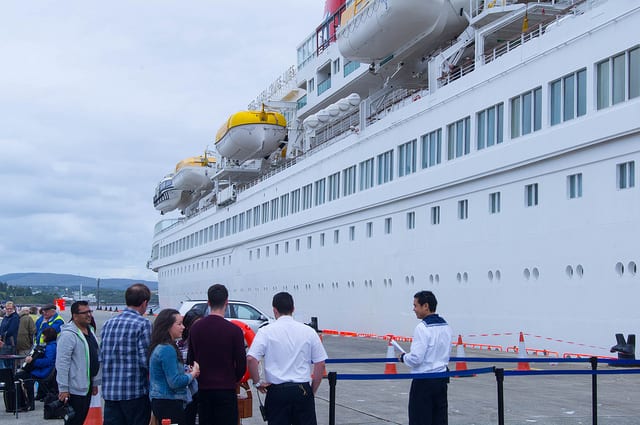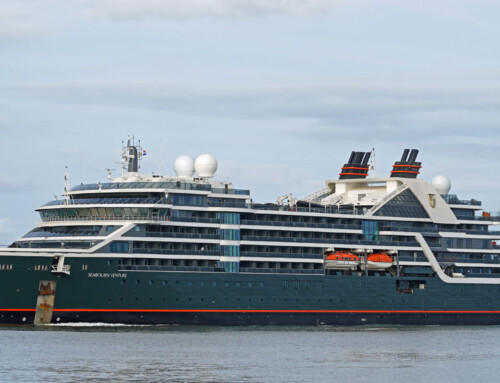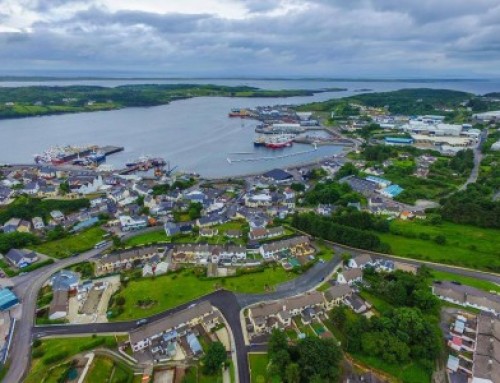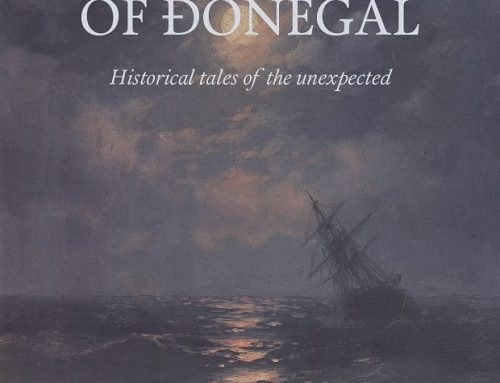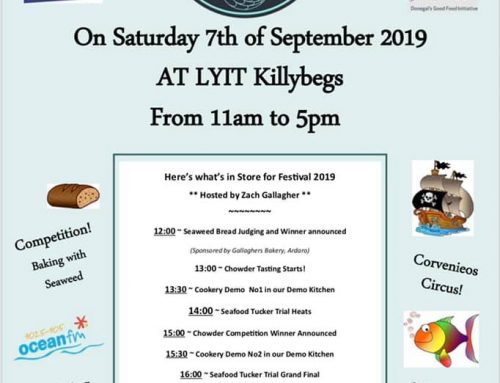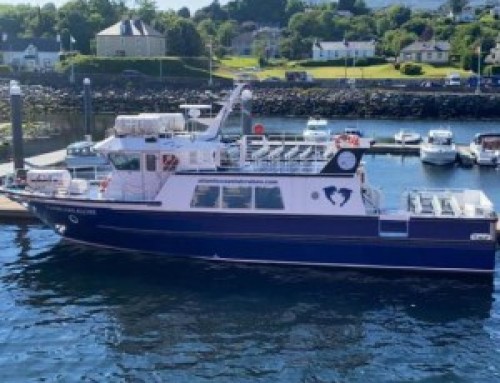Another first for Killybegs on Saturday (Aug 15) as passengers boarded a cruise ship in the port to begin their holiday on the ocean wave. This was the first time Killybegs Harbour has been used by a major cruise line as a point of embarkation. Eleven passengers, in all, went aboard the Fred Olson ship, “Black Watch”, which then set sail on a 14-day round trip to Canada and back. The vessel began its journey from Liverpool two days earlier. Among the first to board at Killybegs were Martyn Smith and his wife, Rachel, originally from Essex but now living in Tallanstown, Co Louth. Martyn, who is RNLI operations manager for Ireland, is no stranger to Killybegs and the north west. The couple are taking the cruise as a delayed 25th wedding anniversary celebration and hope to visit relatives in Canada.
“We didn’t want to fly so I Googled cruises leaving Ireland and this came up” – Martyn & Rachel
Along with others going aboard the “Black Watch”, Martyn and Rachel spent the previous night in the Tara Hotel to await the arrival of the ship at 2.30 on Saturday. Another passenger boarding at Killybegs was Dubliner, Dermot Milner. And it wasn’t his first time in Killybegs either. “I used to go angling so I know Killybegs quite well”, he said. He spotted the offer in an advertisement by his travel agent, John Galligan, in Sandyford. “I travelled with Saga Lines before”, he said. “It’s handy having everything arranged.” On that cruise, he departed from Dublin and returned to Belfast.
“I visited the Western Isles of Scotland and up to Norway. I like to stick to the North Atlantic, he explained.”
Another happy couple going aboard were bus driver, Michael O’Boyle and wife, Margaret, from Galway. “We had been on a few Fred Olsen cruises with James McGinley Travel”, said. “We thought this would be a good one.” The cruise left Killybegs for St. John’s, the capital of Newfoundland, Canada, and was also scheduled to visit the island of St. Pierre et Miquelon, described as “the last remnant of France’s once large territory on that continent”, along with Sydney, Nova Scotia, and the UNESCO World Heritage Site at Red Bay, Labrador, before returning to Belfast.


